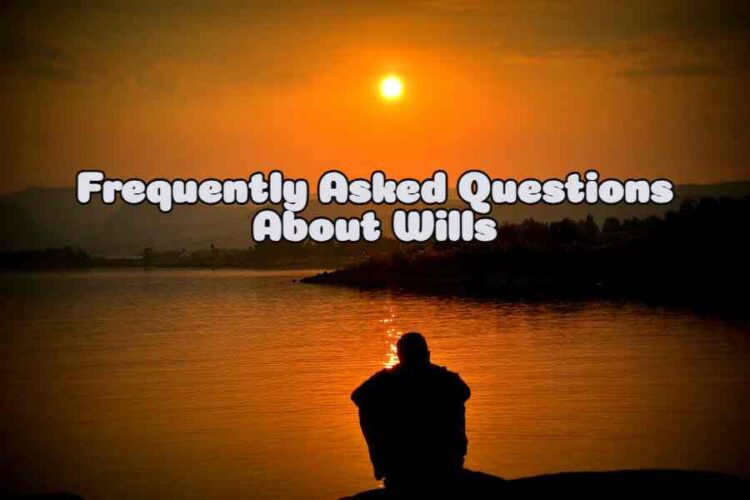According to a Gallup poll, less than half of US adults have a will. This is a shocking statistic, given how this crucial legal document provides helpful information for your loved ones about the wishes for your estate once you pass.
While everyone has a different reason for why they haven’t yet created a will, a lack of knowledge can be one of them. You may be more inclined to create one after learning the answers to some of the most commonly asked questions about wills below.
Can I Write My Own Will?
You are within your legal right to write your own will. There are dozens of templates online you can use to create your own. However, Ipswich lawyers and lawyers from leading estate planning law firms worldwide can also help with this important task. It’s often recommended as you must take a series of steps to ensure your will is legally binding. You also have to ensure your will contains:
- Your full, legal name to clarify ownership of the will
- A statement saying that the document is your last will and testament
- A statement expressing that you’re of sound mind and no one is pressuring you to write your will
How Do I Get A Will?
When you’ve never had to create any legal documents before, it’s only natural to be unsure where and how to get a will. Fortunately, it’s a straightforward task.
You can contact your nearest will and estate planning lawyer and make an appointment for them to create one for you. In the meantime, think about what you would like to include in your will, such as:
- Specific gifts for family members
- Guardians for children
- Who will be your executor
- Specific instructions
- Funeral details
How Does A Will Work?
You might think verbally sharing your wishes for your estate after your death is enough. However, a will can make those wishes legally binding. Essentially, it’s a set of instructions for your family to follow to ensure your property is disposed of as per your wishes.
If you die without a will, known as dying interstate, your state’s laws can determine how your property is distributed. However, some laws may come into effect before your wishes. For example, you may be unable to disinherit a spouse in states with spousal rights laws.
Who Inherits Your Assets When You Die With No Will?
Since nearly half of Americans don’t have a will, there’s a chance that nearly half of Americans will also die without a will. This begs the question: Who inherits your assets if you die with no will?
How assets are divided can depend on your marital status. The assets of single and childless people may go to surviving parents. If there are no surviving parents, they may be divided among siblings. If there are no siblings, they can be divided among other relatives.
The community assets of married people typically go to the spouse, while separate properties are often divided among spouses, siblings, and parents. Anyone in a domestic partnership may see their property divided as per state instructions if domestic partnerships aren’t recognized in your state.
You deserve to have control over what happens to your estate once you pass. A will can go a long way toward having that control. If you don’t have a will, now might be the right time to contact your local estate planning lawyer and create one.










